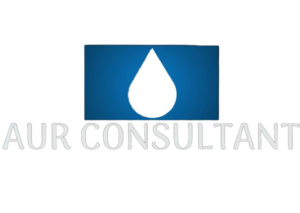
Estimated Reading Time: 6 minutes
Modern industries are rapidly evolving, and with them comes a growing emphasis on practical skills over traditional academic qualifications. While formal education provides foundational knowledge and critical thinking abilities, the ability to apply that knowledge in real-world situations—through hands-on skills—is becoming increasingly important. Employers are now prioritizing candidates who can demonstrate problem-solving and adaptability, making the shift toward skills a necessity for success in today’s dynamic work environment.
Formal education introduces us to theories, concepts, and a broad range of subjects, laying the groundwork for intellectual development. In contrast, skills are the specific, practical abilities that are developed through practice, training, and experience. While education can sometimes remain abstract and theoretical, skills offer actionable expertise that is directly applicable to everyday job tasks and challenges. This distinction is critical: possessing a degree does not automatically equate to being job-ready if the practical skills are missing.
Today’s workforce—especially Millennials and Gen Z—is characterized by an exceptional capacity for rapid adaptation. These generations are quick to leverage new platforms, tools, and learning methodologies such as online courses, coding boot camps, and industry certifications. This swift adaptation allows them to acquire in-demand skills faster than traditional educational systems might allow. As a result, employers are increasingly looking for individuals who not only have theoretical knowledge but can also quickly learn and apply new skills to meet evolving industry demands.
The role of technology in skill development is transformative. Online learning platforms such as Coursera, Udemy, and edX provide accessible, affordable courses tailored to current industry needs. Additionally, specialized programs like coding boot camps offer intensive training that equips individuals with job-ready skills in a matter of months. The integration of artificial intelligence and adaptive learning techniques further personalizes education by tailoring content to an individual’s strengths and weaknesses. This technological advancement ensures that skill acquisition is not only faster but also more aligned with real-world demands.
Despite India’s impressive educational output—with approximately 1 million graduates and 3.85 million post-graduate students produced annually—the country still faces significant challenges with unemployment. The primary issue lies in the disconnect between academic preparation and the practical skills required in the workforce. Many graduates, including those from top institutions, often find themselves unprepared for industry-specific demands, leading to a mismatch that contributes to high unemployment rates. This situation calls for a more robust integration of skill development initiatives alongside traditional education.
Across the globe, hiring practices are undergoing a fundamental transformation. Major companies such as Google, Tesla, and IBM have begun to prioritize practical skills and hands-on experience over formal degrees for certain roles. This trend isn’t limited to technology companies; industries such as marketing, healthcare, and education are increasingly valuing non-traditional qualifications, including certifications and specialized training programs. As a result, the focus is shifting from academic credentials to demonstrable expertise that can directly contribute to organizational success.
Employers play a crucial role in narrowing the gap between theoretical education and practical industry needs. By adopting a skills-first approach, organizations can cultivate a workforce that is both agile and well-equipped to tackle emerging challenges. Some key strategies include:
As industries continue to evolve, the ability to learn and adapt will be the most valuable currency in the modern job market. Future success will depend not on formal degrees alone, but on the continual acquisition and refinement of practical skills. For individuals, this means embracing lifelong learning through various channels—be it formal training, online courses, or hands-on projects. By prioritizing skills development, professionals can stay ahead of industry changes and ensure long-term career growth and resilience.
In conclusion, while formal education provides a vital foundation, it is the practical, demonstrable skills that truly prepare individuals for the demands of the modern workplace. Recognizing the importance of both education and skills, and integrating them effectively, is essential for addressing current unemployment challenges and fostering innovation. Employers, educators, and policymakers must collaborate to create an environment where skill development is prioritized, ensuring a workforce that is adaptable, competitive, and ready for the future.
Learn more from our collection of Blogs Here.

Your honest partner in the search for the best